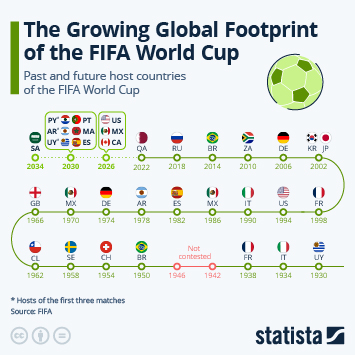Little more than a year after Argentina were crowned champions at the 2022 FIFA World Cup, Qatar is once again playing host to a major international football tournament, the AFC Asian Cup. Since its inauguration in 1956, the quadrennial tournament organized by the Asian Football Confederation has grown both in size and in stature. Following its latest expansion in 2019, the Asian Cup now involves 24 national teams from the Asian Confederation competing for a spot in the final, which will be held at Lusail Stadium on February 10.
According to the bookmakers, record champions Japan, South Korea and Iran are the favorites to win this year’s tournament, with Australia, Saudi Arabia and Qatar also in contention for the title. Host country Qatar will be particularly keen to follow up on their 2019 triumph, especially after a disappointing group stage exit at the World Cup last year. Among the favorites, Japan and South Korea are the only ones to have dropped points on the first two match days of the group stage, as Iraq stunned Japan in their 2-1 win on Friday and Korea needed an injury-time equalizer to avert a shock defeat against Jordan on Saturday. Both teams still have every chance to go through to the knockout stages, however, as the tournament’s format also see the four best third-placed teams from advance into the round of 16.
As our chart shows, no nation has won the Asian Cup more often than Japan, who lifted the trophy four times, most recently in 2011. South Korea dominated the early years of the competition with consecutive wins in 1956 and 1960 but has since been waiting for a third victory. With a squad including Premier League strikers Son Heung-min and Hwang Hee-chan as well as Bayern Munich defender Kim Min-jae, many think that this could be the year for the current generation of Korean players to make their mark at the international stage, but the start under new manager Jürgen Klinsmann has been underwhelming.




















